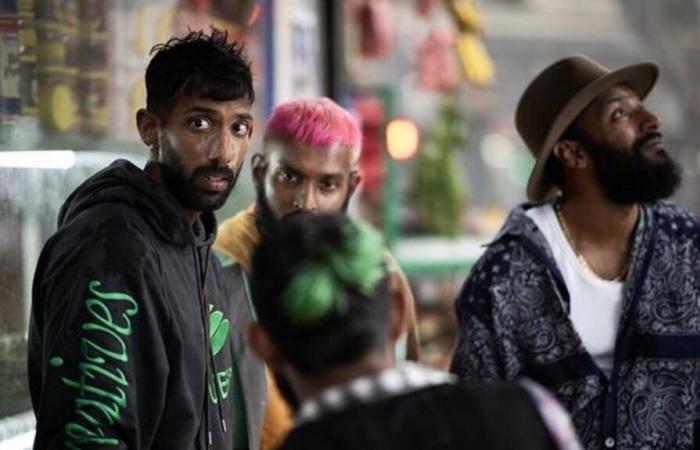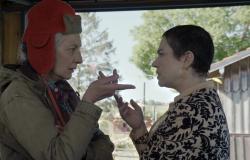Little Jaffna is a thriller that takes place, as its name suggests, among the Tamil community in Paris, in the Chapel district, in the north of the capital. The film immediately places in the position of the observer who gradually integrates this community. We accompany the gaze and the steps of Michael, a young police officer, responsible for infiltrating a criminal group known for the racketeering of the merchants of the neighborhood and the money laundering, all for the benefit of the guerrillas of the Tamil separatists who fight in the country.
Infiltration-Let us specify it-facilitated by the fact that Michael is himself of Tamil origin and the son of a deceased fighter. By borrowing from this device of the double agent, already a lot seen in the cinema but still as formidably effective, Lawrence Valin (who himself plays the role of Michael) has the good idea to add documentary and sociological elements, by playing on the differences in culture and language, for an astonishing and successful result.
This is the opportunity, too, to put a spotlight on a Tamil community, which we usually speak little, thanks to genre cinema. The film is tough, stressful, the explosions of violence are neighboring there with rare more tender family or romantic moments. It is carried by a majority of non -professional actors, mostly excellent, and a nervous aesthetic inspired by the cinema of Hong Kong, among other influences. Little Jaffna is the good surprise of the week.
-
Or how to succeed in perfection a film which we already know the end: on December 21, 1989, the dictator Nicolas Ceausescu addressed an immense crowd in Bucharest, convinced that as usual the people (who are there on order) will cheers. After a few minutes, it is the riot, and the beginning of the end for the one who has directed Romania with an iron fist since 1965.
A few days upstream of this historic date, Bogdan Muresanu recounts 5 stories in parallel, which will converge in a crescendo to the sound of Bolero From Ravel, to the Place de la Capitale, the D -day mentioned. By the intimate one touches on the cruelty and the absurd of life under dictatorship. The image, by its sad grain, feels the naphthalin of the time. Red thread of this drama, the devastating humor of the director, with for example a kid who makes you crazy about his father for writing to Santa Claus: “For dad, that old Nico dies, because that’s what he wants. “
Once again, Romanian cinema offers us a nugget. Bogdan Muresanu is the worthy heir to Cristi Puiu, Cristian Mungiu, Radu Jude, Emmanuel Parvu and others. We want more …






